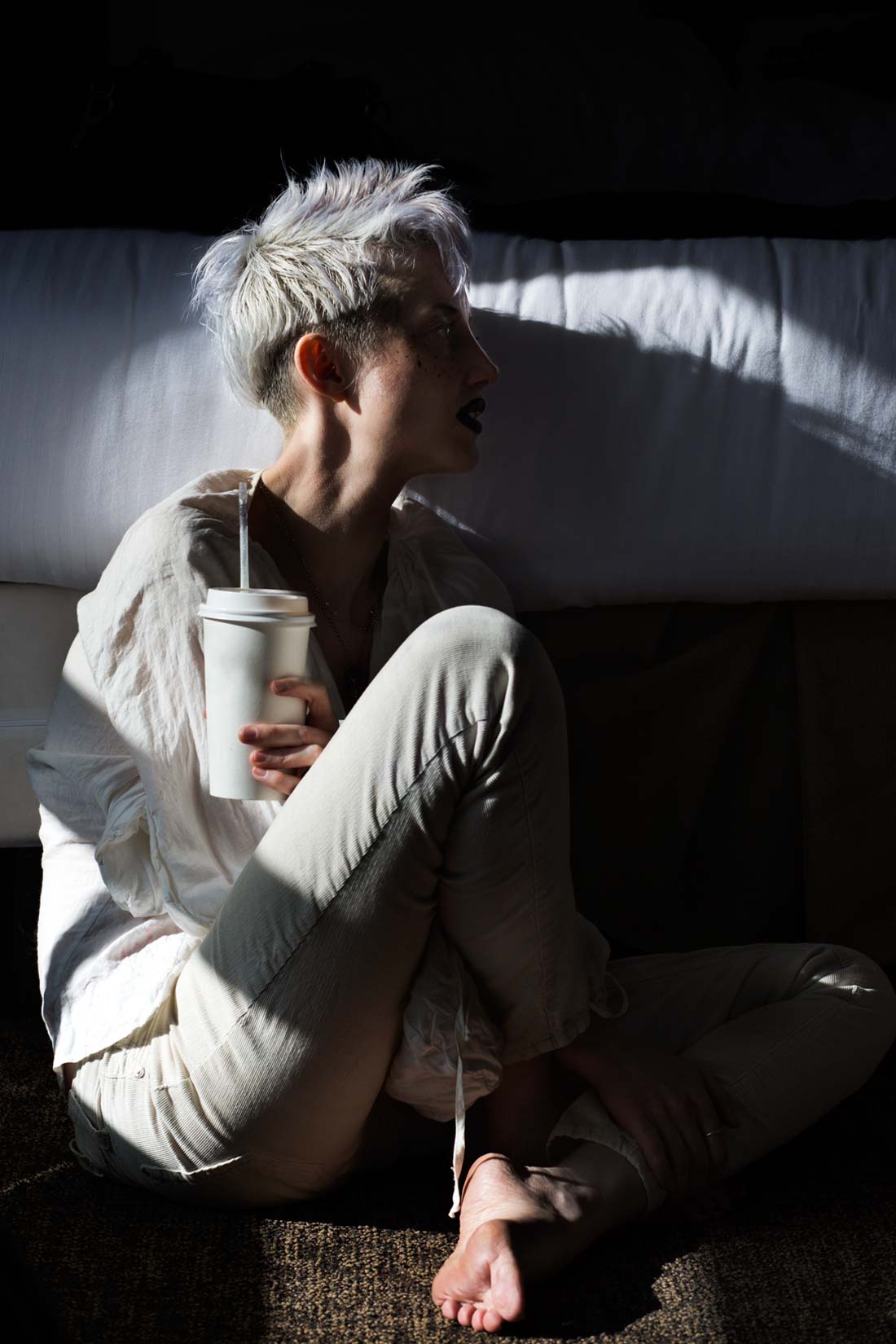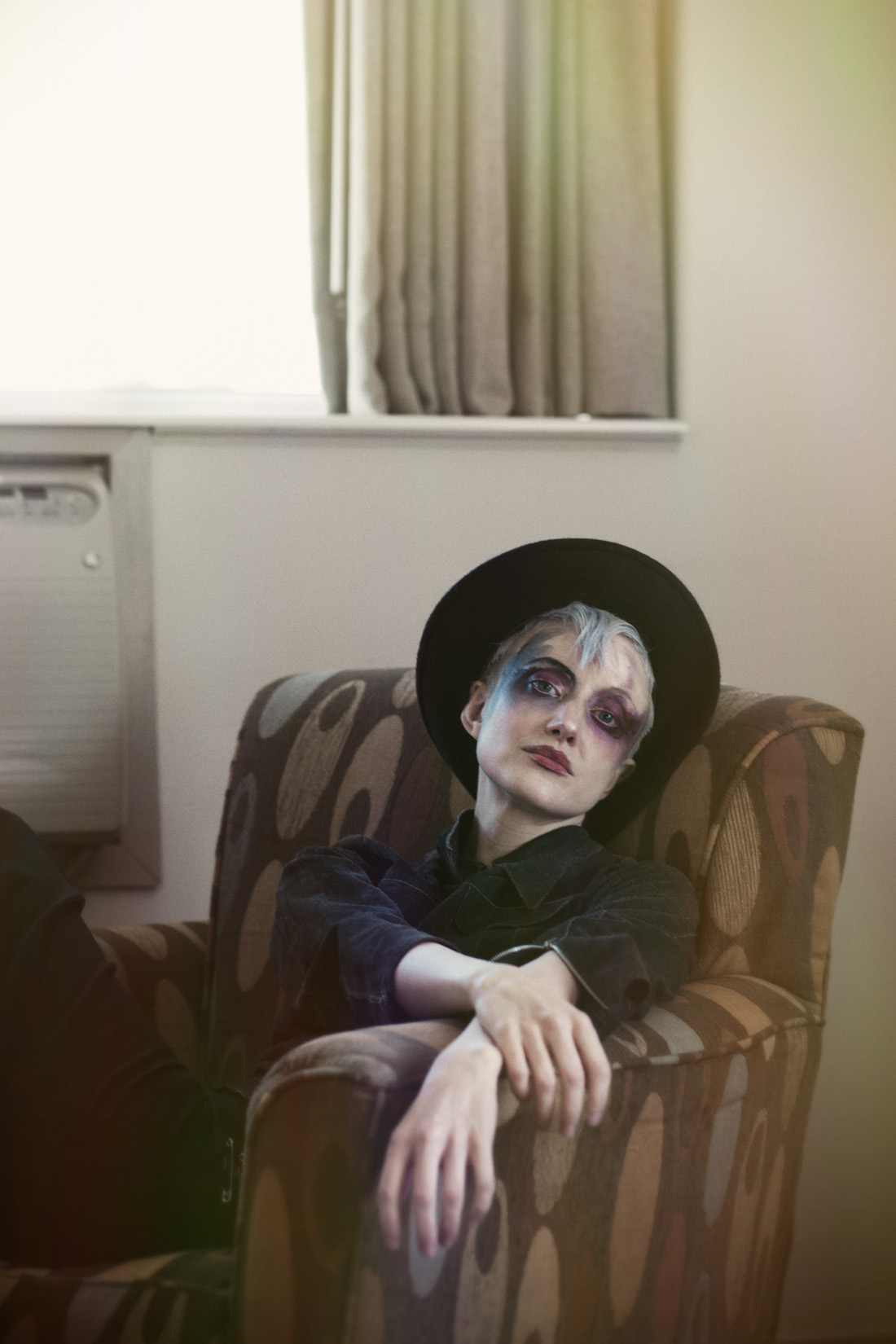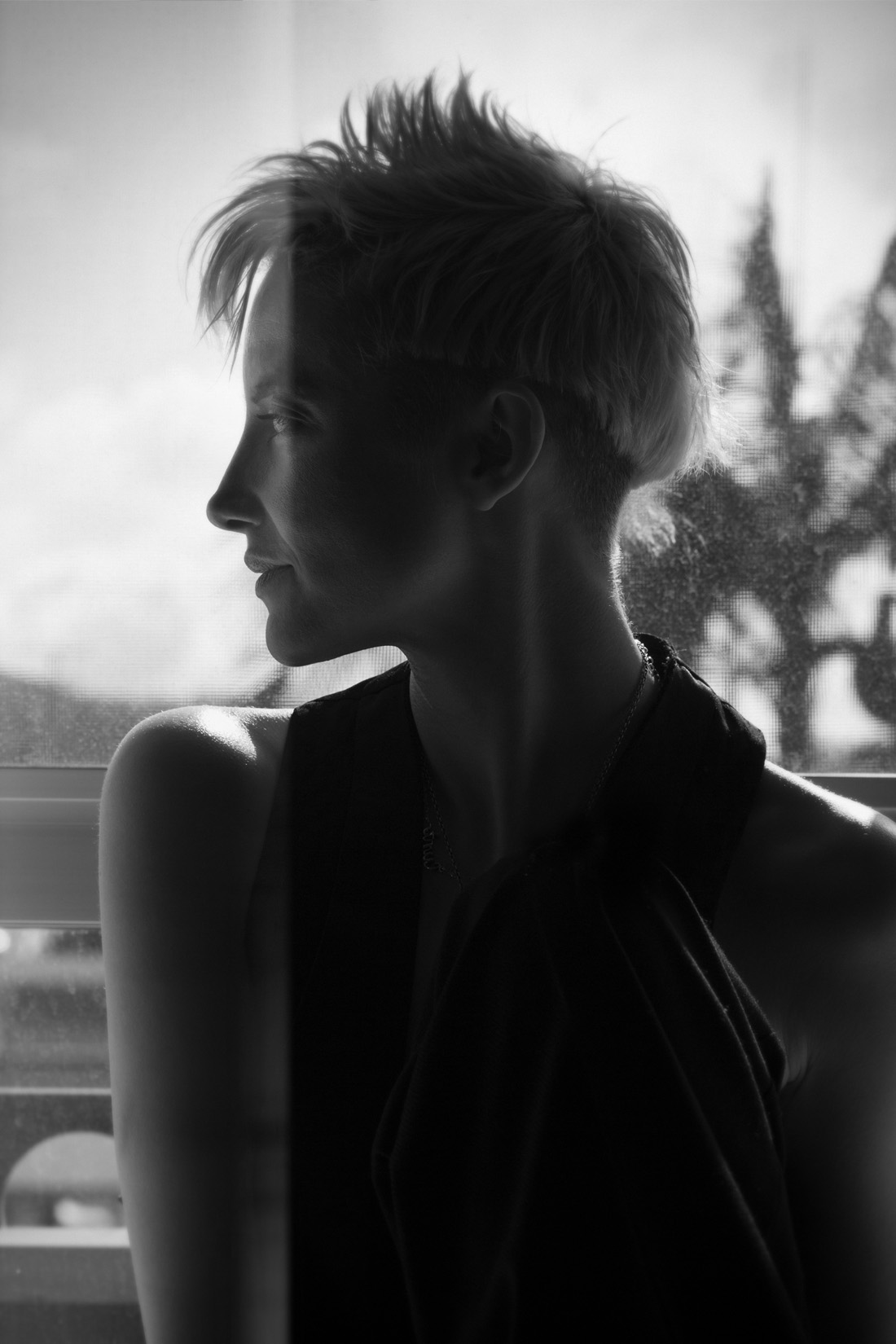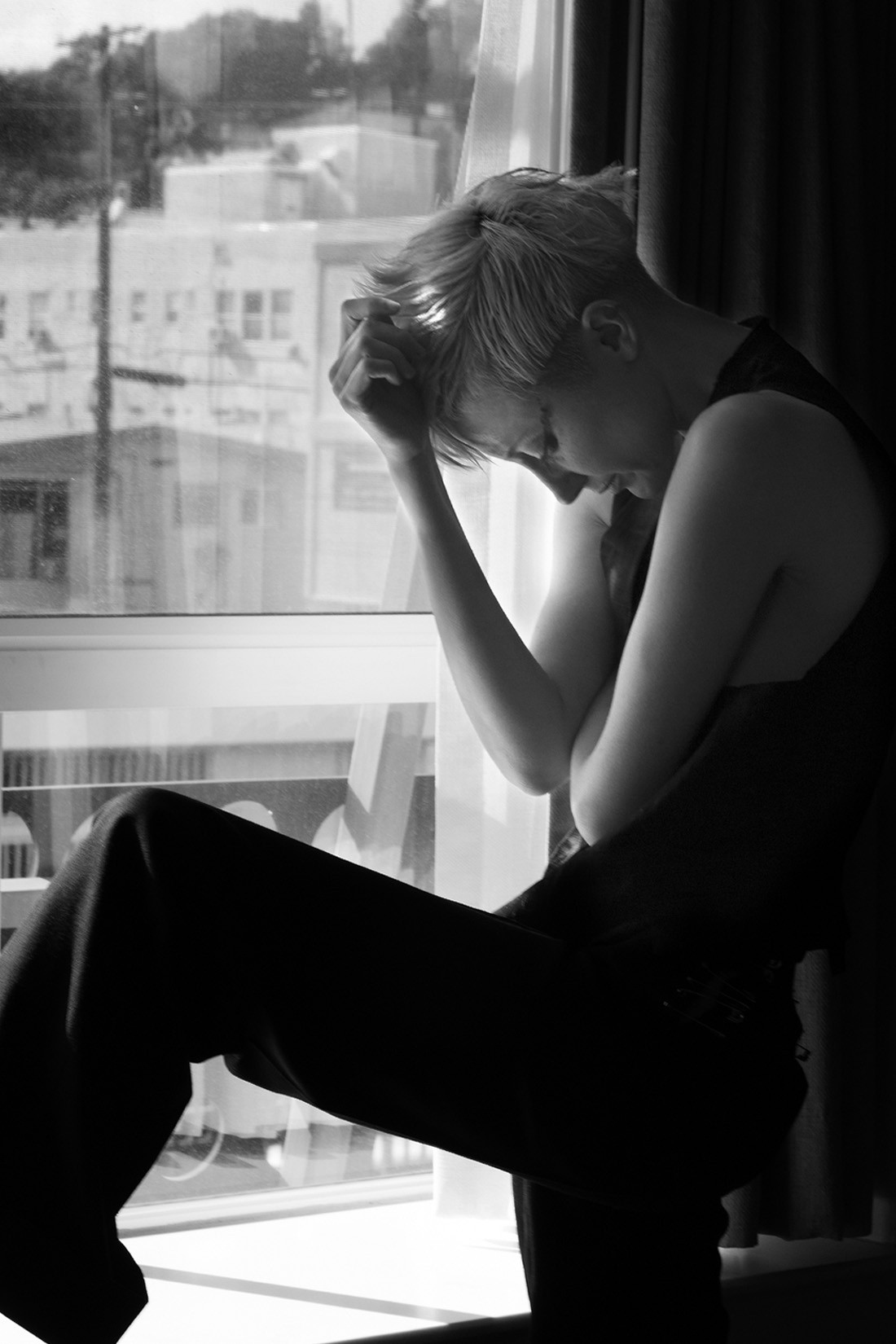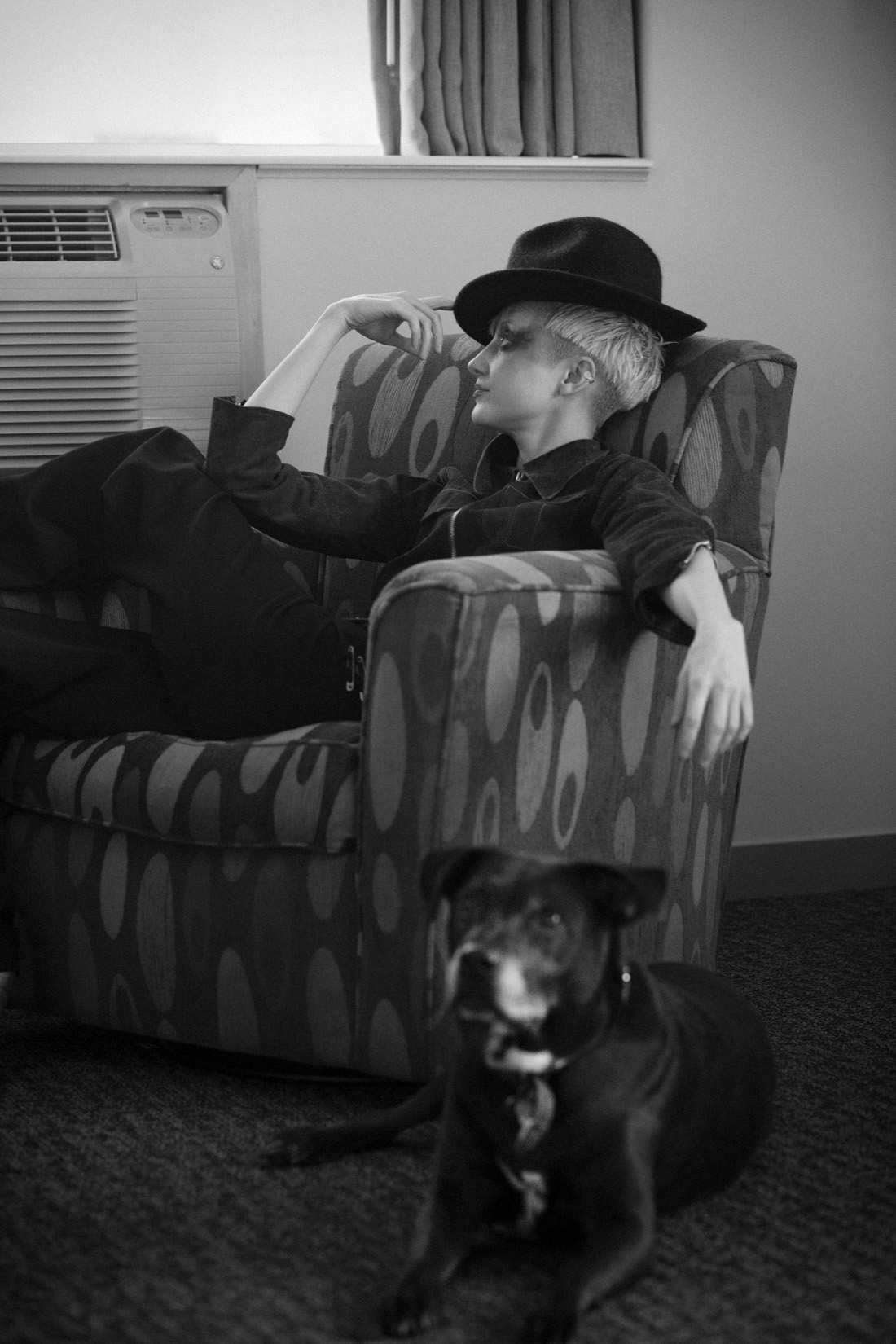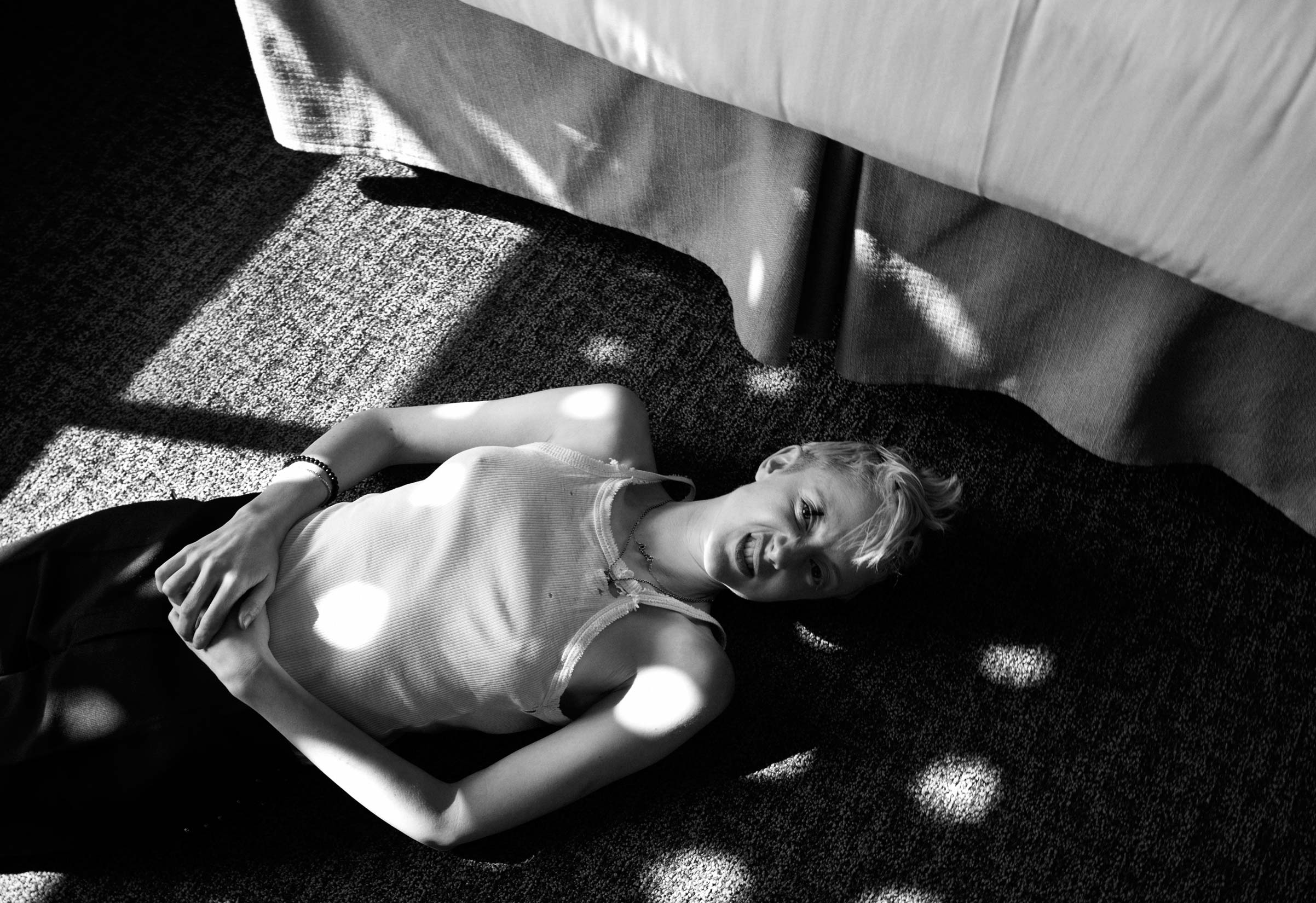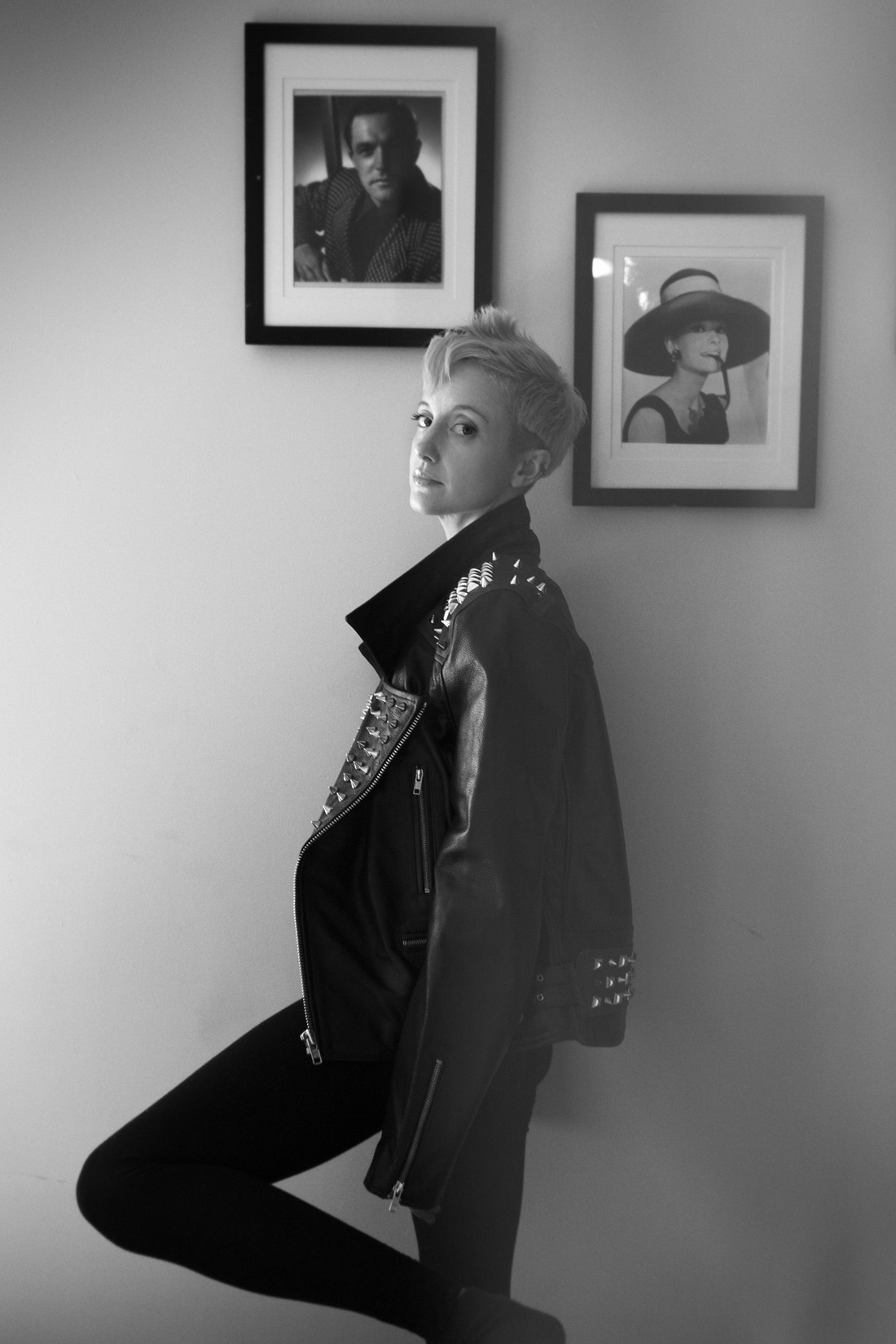It seems that you are equally comfortable playing the leading lady as you are with taking on smaller parts. You could have easily played the lead in Battle of the Sexes?
I don’t think I’ve ever really approached anything thinking about it that way, how large is the part. I think it’s more about whether you respond to the material, or not, I suppose even more importantly to me, the director. In this case, the directors Dayton and Faris are very good. Emma was already playing Billie and that’s one of the things that attracted me to the project. Dayton and Faris from the beginning wanted to explore the love story between Billie Jean and Marilyn, and that was very interesting. I think it was hard for them to cast me in that. I’m sure a lot of people wanted to play that part as well but I think that took a fight for Dayton and Faris. I’m very grateful that I was able to be part of it and playing Billie Jean King was never on the table.
Marilyn Barnett like so many of your characters is a real life person. Young Thatcher, Wallis Simpson, Svetlana Stalin! Is there a pattern in your selection of roles?
I’ve played so many people in existence in my career and that has been wonderful. Probably the most difficult part of playing Marilyn was that I was portraying someone who existed but who wasn’t in the public eye. There is no archival footage and very few still imagery of her so it’s just harder to get to the source. Also, she’s no longer alive so I never got to meet her. Whereas usually, you’re playing someone who has existed and their life has been documented. In the way our movie is documenting Billie Jean’s life, there are endless amounts of material on her so it’s almost like the opposite pressure in a way. I know that Emma felt a huge responsibility to do Billie Jean justice, which I think she did in so many ways. And for me, the responsibility was doing Marilyn justice with very little information, representing a woman who really existed, had her own agenda and loved Billie Jean very much. I think our Marilyn looks a little different to the actual Marilyn in terms of facial muscles and how I use mine. It’s difficult, because I didn’t see her talk a lot, or even observe her mannerisms. There were a lot of gaps that I had to fill in with my imagination. And, as Billie said, it was uncanny how like her I was. I’m very glad it happened. With young Thatcher, I had maybe five minutes of film, which is actually a lot. To be able to see her, that was like a goldmine compared to Marilyn. Marilyn was usually in the back of the picture, but she was at the forefront of Billie Jean’s world, at that time, romantically. She wasn’t at the very front, because tennis was there.
I liked the club scene where Billie Jean refuses to dance with a man who comes up to her and your character takes up his offer instead. I like the way you are shot. Is it okay to say that you become the object of desire of the film?
No! I think it was very important that we felt the love that Billie had for Marilyn, which was far more than a look. Just being an object of desire, I think that’s really reducing her. I don’t think I’ve ever used the phrase “Love at first sight” but a connection, a deep visceral connection, yes! I hope that this comes across. To me, it would be like an instant connection. I don’t understand why that is objectifying – a woman dancing, with barely any make-up on and bare feet and her hair down. I don’t see how that is playing the object of desire in a film. I think that’s a very narrow view of a woman. I think in the film, Marilyn is the representation of the whole and free spirit of a generation. It’s the beginning of the 70s, she is the catalyst for change in Billie Jean. Billie starts seeing her body as not only this instrument for incredible physical prowess, but also for something that can contain and enjoy love. She’s an awakening. So yeah, I think that’s more what Marilyn is to me.
In your youth you were into punk and very anti-Thatcher. How did you manage to empathise with her? Did your idea of her clash with the positive portrayal of her in the movie?
It’s only my opinion, it doesn’t mean anything. My mum and dad supported Thatcher at that time, but that’s the joy! I think that’s one of the best things of my job, which is that you get to have empathy for somebody who you get to play. You really and truly accept that everybody is human.
Would you have played Wallis Simpson in W.E differently had you found proof that she was a Nazi sympathiser?
You discovered that she really was a Nazi sympathiser?
I did Google thoroughly, yes. But I couldn’t make up my mind.
Well, Google is not the best place to research. I think the archival stuff is really helpful. Archives are great. Libraries are still wonderful and very reliable sources. So are people you know, it’s wonderful to talk to as many people as possible. I don’t think that a hard ‘yes’ or ‘no’ is available with that information.
Can I say you are a very political artist?
I think I just care about doing meaningful work. I’m not interested in being in any of Michael Bay’s films. I’m not interested in perpetuating some negative image of women. I have played women who have struggled with being trapped inside of their own version of their gender, like Laura in “Birdman”. She’s a woman who I couldn’t have identified less with. However, I came to really identify with her, because she was my character, and came to be very fond of her. I just enjoy doing work that is in some way innovative or thoughtful. I don’t really enjoy doing very conventional British films where everyone swans around in a posh drawing room. I think that’s a very narrow representation of what this country is, and really what Europe is. But I am really interested in female writing, in female stories. I am interested in homosexual stories. I’m interested in anything that more fully and accurately represents the majority rather than a very small minority representing the majority.
Do you gravitate towards characters that have existed because they are a bigger challenge?
Well, I’ve also been offered them. It’s something I can do. It’s not something every actor wants to do, but it seems to come naturally to me. I really enjoy it. A side effect is that you do it once and industry people assume that you might be able to do it again. When you have this direct frame of reference to work from, like I felt with Billie, then there’s a lot of pressure. It’s also wonderful, like a door opening to someone else’s life. There’s a lot of information to get stuck into. You feel the rhythm of how they sit and move which I do with every character. But, particularly when people have existed, it’s almost like there are some cold hard facts and it’s really satisfying to hook on to them.
Which brings us to The Death of Stalin where you play another real life person.
The Death of Stalin is the exact opposite. I’m playing Svetlana Stalin and she did really exist. There was quite a lot of footage of her when she was older, and very little footage of her when she was younger. So again, I’m re-creating a version of what might have, been but is not necessarily documented on film. It’s been really interesting. I think it is sort of a brutalist comedy. It’s not dark, it’s way darker than dark. It’s about the death of Stalin, which is a really brutal subject matter. We’re not talking about which side Trump’s parting his hair, we’re taking about six million people dying. I think it’s an amazing film and am really excited about it. Armando Iannucci has done an incredible job of embracing how violent, brutal and incompetent that very powerful group of men were. He shines a light on their incompetence, to the point where it’s hysterical. It’s sad and hilarious – all that backstabbing. I got to work with Simon Russell Beale, who is one of our finest theatre actors, Steve Buscemi, who my company made a film with, and Jeffrey Tambor, Michael Palin and Paul Whitehouse, I mean, Rupert Friend! It was such a great cast. Ah, Paul Chahidi, just some really, really, really brilliant people. Jason Isaacs!
Shepherds and Butchers is probably my favourite of all your films. Again based on real events. The photography was very inspirational to me.
I’m glad you liked it. I think probably only you and about six people saw it! Oliver, the director, is very good. We have an amazing director of photography , Leah Striker. She’s so awesome. I normally work with women directors of photography and I have an all-female film company, called Mother Sucker so it’s nothing new for me really, but Leah’s absolutely awesome.
I get the impression that you and Steve Coogan belong to a gang or maybe a sort of acting family.
I thought Coogan was a lone wolf. I think that there might be groups of us out there that seem to be publicly in the same pool. But like with any art form, doing anything artistic, kind of makes you a lone wolf. The great thing is, if you get the great fortune to be able to do your work and then you get to collaborate, that’s when we all sing. That’s when we all shine!
So how does a movie like Mindhorm fit into your choice of roles? My assumption would be because of the actors in it.
I REALLY LOVE Julian! Julian is just one of my favourite comedians of all time. Steve and I had just finished Shepherds and Butchers and I skyped or face-timed or whatever with Sean Foley who is our director and he said “There’s this thing, I don’t know whether you would like to do it?” And I was like, “who’s in it?” And he explained everything and I said “when is it?” He was like “it’s kinda next week.” It all happened last minute. It’s Ridley Scott’s company that I’d worked with before, and I said: fuck it, yeah. It was such a brilliantly hilarious experience. It’s always nice to be funny. I’ve done a lot of comedy in my life.
Can you please tell us about your all women production company?
It’s called Mother Sucker and it’s an all-female film company. The film that we finished this year is called Nancy and Steve Buscemi is in it. I think that it will come out next year. The director , Christina Choe, is a wonderful filmmaker. She had written a narrative feature that she had sent to me titled Nancy and I just sort of stuck with it for three years. We went through all sorts of different producers but in the end we decided to just make it with my company because it had to be an uncompromising effort.
The Death of Stalin can currently be seen in theatres. Battle of The Sexes can be seen in theatres on the 24th of November 2017. Black Mirror is due for release in December 2017
Interview & photography by Andrea Vecchiato.
Styling by Anna Bellati
Clothes: pirate top Vivienne Westwood white corduroy from Stelle – black vest and pants by Stelle – suede jacket by Stelle, hat by Borsalino – white tank top by Stelle – black & red leather jacket from Raddar7 leggings by All Saints.
